Earth
Sign up for our newsletter
We summarize the week's scientific breakthroughs every Thursday.
-
 Life
LifeNeon colors may help some corals stage a comeback from bleaching
When some corals bleach, they turn bright colors. Stunning hues may be part of a response that helps the corals recover and reunite with their algae.
-
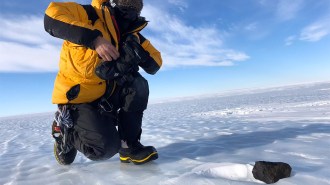 Planetary Science
Planetary ScienceMeteorites might be more likely to strike near the equator
Meteorites from Antarctica have helped scientists assess the total number likely to hit Earth every year — and where they are most likely to fall.
By Shannon Hall -
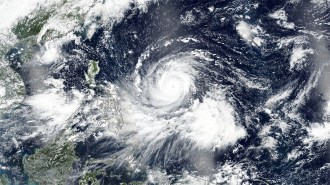 Climate
ClimateHow more powerful Pacific cyclones may be fueling global warming
Increasingly strong storms in the North Pacific may be speeding up the fast-moving Kuroshio Current — which could bring more heat to high latitudes.
-
 Earth
EarthUp to 220 million people globally may be at risk of arsenic-contaminated water
A new world map highlights possible hot spots of arsenic contamination in groundwater.
-
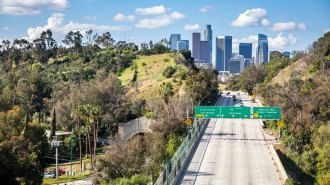 Climate
ClimateDaily global CO2 emissions dropped dramatically as COVID-19 kept people home
Daily carbon dioxide emissions in early April were 17 percent lower than average daily emissions for 2019, thanks to government policies to restrict the spread of the coronavirus.
-
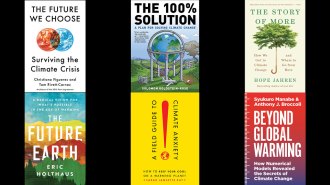 Climate
ClimateThese 6 books explore climate change science and solutions
Science News staff read recent books about climate change to help guide you to which ones you might like.
-
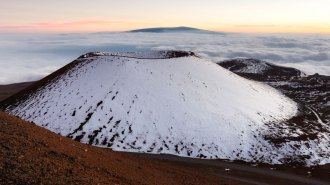 Earth
EarthLong-dormant volcano Mauna Kea has been quietly grumbling for decades
Small, periodic earthquakes have happened every seven to 12 minutes for decades, but aren’t reason for alarm, a new study finds.
-
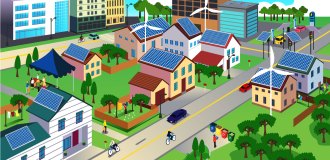 Climate
ClimateWhat lifestyle changes will shrink your carbon footprint the most?
You can reduce your carbon emissions, but the most influential changes will depend on your circumstances.
-
 Climate
ClimateHow to protect your home from disasters amplified by climate change
How people can make their homes and communities more resilient to the effects of climate change, including floods, fires, heat and drought.
-
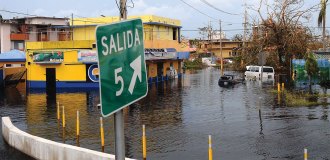 Climate
ClimateWhat data do cities like Orlando need to prepare for climate migrants?
As researchers wrestle with how to anticipate future population shifts due to climate change, possible “destination cities,” like Orlando, Fla., prepare for an influx.
-
 Climate
ClimateWhat Michael Moore’s new film gets wrong about renewable energy
Michael Moore’s Planet of the Humans challenges renewable energy’s ability to fight climate change, but it’s riddled with errors and old information.
-
 Earth
EarthDeadly temperatures expected to arrive later this century are already here
Temperatures near humans’ physiological limit have doubled in frequency since 1979, exposing millions of people to dangerously hot and humid conditions.